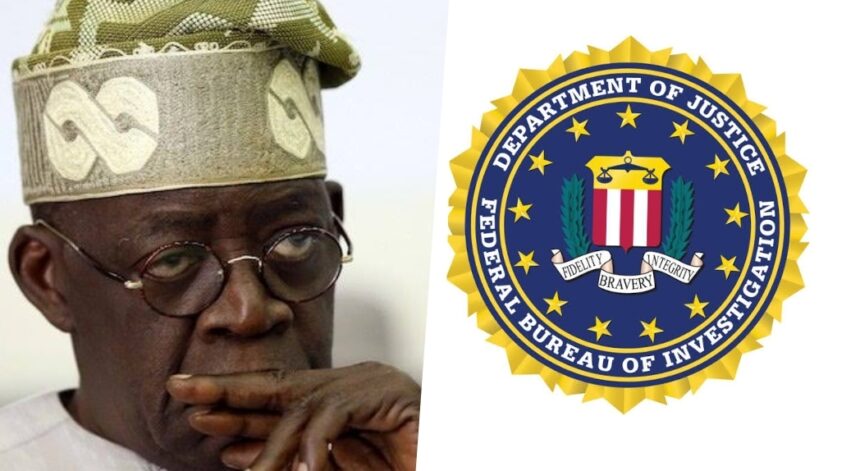Tensions are soaring as an American legal transparency advocate and founder of the platform PlainSite, Aaron Greenspan locks horns with the Federal Bureau of Investigation (FBI) and Drug Enforcement Administration (DEA) over a requested 90-day extension to release President Bola Tinubu’s case files.
Tinubu’s case files said to be linked to an alleged 1990s drug trafficking probe in Chicago, sparked a heated legal battle with Greenspan accusing the agencies of stalling.
Pan-Atlantic Kompass reports that the legal battle began from a Freedom of Information Act (FOIA) lawsuit filed by Greenspan in June 2023, demanding access to Tinubu’s case files.
Greenspan approached the U.S. District Court for the District of Columbia, seeking the release of records connected to a Chicago-based drug ring, naming Tinubu along with three other individuals: Lee Andrew Edwards, Mueez Abegboyega Akande, and Abiodun Agbele.
On April 8, 2025, U.S. District Court Judge Beryl Howell ordered the FBI and DEA to produce non-exempt documents of Tinubu’s case file by May 2, rejecting their earlier “Glomar responses” that neither confirmed nor denied the records’ existence.
However, in a joint status report filed before the court, the FBI and the DEA requested an additional 90 days to complete their searches, citing the complexity of the task.
Part of the filing reads: “Aaron Greenspan (“Plaintiff”) and Defendants Federal Bureau of Investigation (FBI) and Drug Enforcement Administration (DEA), the only remaining defendants in this case, respectfully submit the following joint status report proposing a schedule to govern further proceedings, under the Court’s Order of April 8, 2025 (ECF No. 47).
“Under the court’s order, the defendants, FBI and DEA must search for and produce non-exempt records responsive to the plaintiff’s FOIA requests (FBI Requests Nos. 1588244-000 and 1593615- 000, and DEA Request Nos. 22-00892-F and 24-00201-F).
“The FBI and DEA have initiated their searches for responsive, non-exempt, reasonably segregable portions of records requested by the plaintiff and anticipate completing their searches in ninety days.”
In his court filing, Greenspan opposed the delay in the release of Tinubu’s case files, arguing that the agencies have had years to comply and that some documents are already identified.
He proposed a much shorter deadline.
His court filing reads in part: “Given the years-long delay already caused by the defendants and the fact that many responsive documents have already been identified, the plaintiff proposes that the FBI and DEA complete their searches and productions by next week, or, at the very least, produce unredacted versions of the already-identified documents by next week, with the remainder completed in 14 days. The defendants provide no rationale for why their search for documents should take 90 days.
“The FBI and DEA have initiated their searches for responsive, non-exempt, reasonably segregable portions of records requested by the plaintiff and anticipate completing their searches in ninety days.”
Greenspan is also seeking reimbursement of $440.22 in filing and mailing costs.
Also, the two sides remain at odds over when the next joint status report should be filed.
While the agencies proposed July 31, Greenspan urged the court to set the deadline for May 31, 2025.





